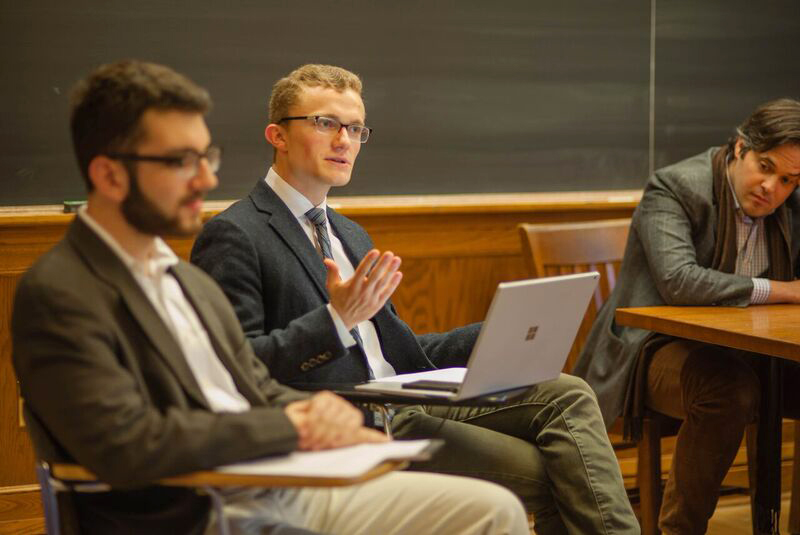
Courtesy Amy Wong
During one of the bitterest election seasons in the nation’s history, support for Republican nominee Donald Trump has divided many conservative voices on campus.
Over the summer, the Yale College Republicans split into two distinct organizations after the group disagreed over whether to endorse Trump. The resulting schism, current and former members of the YCR said, is unlikely to be healed.
According to former members of the YCR, the organization voted in August to not endorse a presidential candidate. However, less than an hour after a Twitter account impersonating the organization tweeted a statement denouncing Trump, the club’s two presidents formally endorsed the GOP candidate on Facebook without consent from the rest of the club. Four members of the seven-person executive person board then left the organization.
According to YCR board member Ben Zollinger ’19, the organization released the endorsement because the group is an official branch of the Republican Party.
“On an organizational level, we sided with the Republican nominee,” Zollinger said. “But we think everyone should vote for what they believe and we didn’t want to influence people’s decisions.”
Ben Rasmussen ’18, former vice president of the Yale College Republicans, said that following the endorsement, he and fellow club member Michael Fitzgerald ’19 decided to part ways with the YCR to form a new club: the Yale New Republicans. The pair “couldn’t stand by” the decision to endorse Trump, Rasmussen said, and therefore decided to set out on their own.
Grant Gabriel ’17, former treasurer of the Yale College Republicans and current vice chairman of the Yale New Republicans, said the YCR presidents felt an obligation to endorse the Republican Party candidate, a notion with which he disagreed. He added that such an endorsement from the YCR turns people away.
“The gesture that we would split off from this type of an ideology and stand against it, even when it’s carrying the endorsement of the national party, demonstrates a more open and broad-minded version of conservatism that I think has resonance at Yale,” Gabriel said.
The question of what it means to be a conservative at Yale has recently risen to the forefront: A recent Yale Daily News survey found that nearly 75 percent of the survey’s 2,054 respondents did not think Yale provides a welcoming environment for conservative students to voice their opinions on political issues.
The deep political divides laid bare by this election have also raised the issue of what respectful and intellectually robust campus dialogue looks like. Joshua Altman ’17, president of the conservative William F. Buckley, Jr. Program at Yale, said attitudes on campus during protests last fall stifled intellectual diversity, citing “unapologetic single-mindedness that I found so dangerous and antithetical to what the Buckley program stood for.”
Still, Rasmussen said he has seen an increase in respectful campus discourse and that things have settled down since last year. And according to Altman, the Buckley program has received over 100 new applications since protests last fall, and the number of Buckley fellows has increased by 50 percent since last year.
“I think intellectual diversity is a hallmark of a Yale education and that if you don’t bother to hear what other people have to say, you’re doing yourself a disservice,” said Altman.
Zollinger added that conservatives have a responsibility to change campus culture and should not hide their political beliefs.
Although the election ends tomorrow, Republican ideals and organizations will likely remain fragmented long after the election ends. Rasmussen said that he thinks there will be a divide in the Republican Party that will manifest itself at Yale, highlighting the decision that students have made between identifying as a Yale College Republican or a member of the Yale New Republicans.
Gabriel said he hopes to see the YCR and YNR reconcile, though he believes the YNR has grown its presence on campus. The new organization, Gabriel said, has the opportunity to reach out to a broader, more moderate base.
But Rasmussen does not see the two organizations forming into one group anytime soon.
“I think that this has created a fission that’s going to be very hard to repair,” he said.







